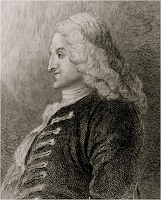Eugène Delacroix (1798-1863)
Ferdinand Victor Eugène Delacroix (/ˈdɛləkrwɑː, ˌdɛləˈkrwɑː/ DEL-ə-krwah, -KRWAH, French: [øʒɛn dəlakʁwa]; 26 April 1798 – 13 August 1863) was a French Romantic artist regarded from the outset of his career as the leader of the French Romantic school.[1]
Images
Works
 |
| Eugène Delacroix (1798-1863), Christ Asleep during the Tempest, c 1853, oil on canvas, h 50.8 x w 61 cm, Metropolitan Museum of Art, New York City, U.S. |
 |
| Eugène Delacroix (1798-1863), Christ Asleep during the Tempest, c 1853, oil on canvas, h 50.8 x w 61 cm, Metropolitan Museum of Art, New York City, U.S. |
 |
| Eugène Delacroix (1798-1863), Christ on the Sea of Galilee, 1854, oil on canvas, 59.8 x 73.3 cm, Walters Art Museum, Baltimore, United States of America |
 |
| Eugène Delacroix (1798-1863), Christ on the Sea of Galilee, 1854, oil on canvas, 59.8 x 73.3 cm, Walters Art Museum, Baltimore, United States of America |












